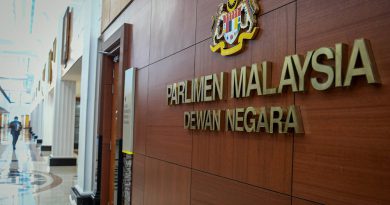Zeti’s disruptive technology reminder to PNB
KUALA LUMPUR: Permodalan Nasional Bhd (PNB) should anticipate a disruptive economy ahead which is highly unstable, more complex and interconnected than before to build on its organisational resilience.
PNB chairman Tan Sri Dr Zeti Aziz said an economy such as Malaysia’s should be able to withstand economic upheavals by having ample buffers and diversified portfolios.
“While it is great to have solid foundation, the environment going forward is going to be very different and more challenging because it highly unstable, more complex, more interconnected and very disruptive.
“One of the areas we focus on is to build resilience so that we should be able to withstand great economic upheavals that may happen by having buffers and diversified portfolios, for example.
“We need to have these kind of strategies to build our organisational resilience. The environment is no longer stable and is less predictable as we no longer can make projections over what happened previously,” Zeti said at a press conference after launching PNB’s first corporate biography titled “In Trust: A History of PNB”.
Also present was Tun Ahmad Sarji Abdul Hamid who was PNB chairman from 1996 to 2016.
The book documented the birth of PNB as an instrument under the New Economic Policy aimed at addressing Malaysia’s social imbalance in the 1970s and its evolution through four decades to become the largest fund management company in Malaysia.
The book also elaborates on how PNB’s success has been built on strong foundations of integrity and trust with in-depth study of PNB that would be beneficial for those in the corporate world, academics as well as general public.
The book launch coincides with PNB’s 40th anniversary, which now has RM290 billion assets under management, including investments owned by its 13.6 million unit holders as well as the institution’s strategic investments in Malaysia’s leading corporates, global equities, private investments and real estate.
Zeti said the future was a great unknown and was also changing very rapidly. Therefore, risk management was crucial as it can act as risk assessment tool for the organisation.
“Risk management has become really important and we have to be really aware of risks in your environment to be managed and mitigated.
“We have to do this now when it (the economy) is relatively stable and if it (economic disruptions) does happen, we can ride it out.
“The dividend performance has is a positive factor for PNB but it is not just about providing wealth to the unitholders but also through strategic investments through corporations,” she added.
PNB president and group chief executive officer Datuk Abdul Rahman Ahmad said PNB was established to mobilise savings and to collective own equity stakes in Malaysian companies.
“In both respects, PNB has been particularly successful, and we have been able to increase and sustain these two objectives. PNB had also managed to continue the ownership of equity in Malaysian corporates.
“If you study the Economic Planning Unit (EPU) data in terms of Bumiputera ownership, what has really driven the growth was institutionalised equity ownership and a large portion of that has come from PNB,” he said.
The book was authored by Nicholas J White who came up with a full length study of PNB. As a government-linked corporation (GLC), it is considered as a unique “hybrid” being both investment company and fund manager.
The PNB was formed with a specific mandate to raise income and savings levels through spreading corporate ownership more evenly throughout the Malaysian economy.
According to the book, PNB runs what is reckoned to be the world’s largest unit trust scheme and manages investments which make up at least 10 per cent of Kuala Lumpur’s Stock Exchange.
PNB currently has more than RM290 billion in assets under management owned by 13.6 million unit holders as well as the institutions strategic investments in Malaysia’s leading corporates, global equities, private investments and real estate.
The book is selling at RM150 for hard cover copy and RM120 for a soft cover copy.
Source: NST



